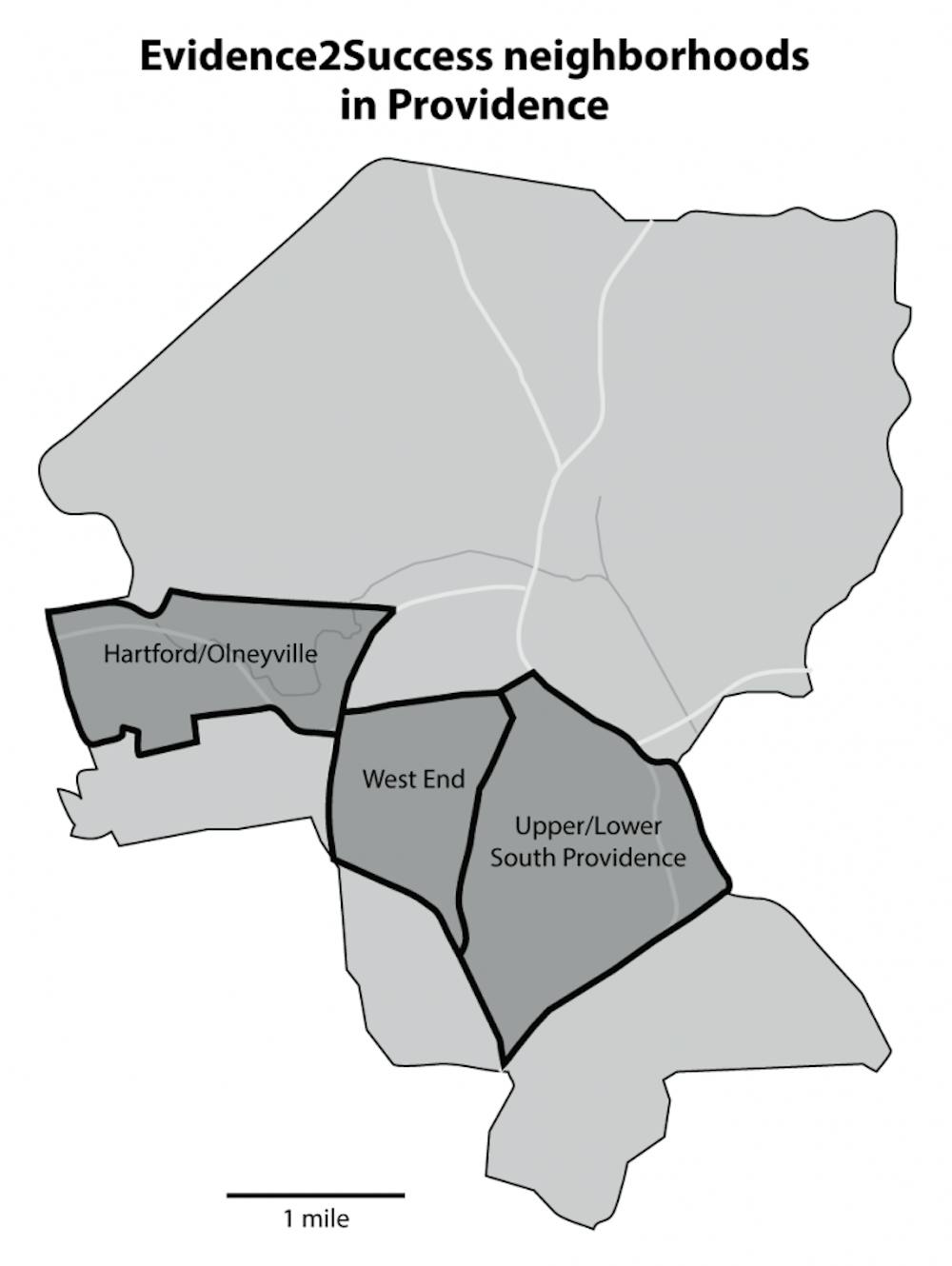Two neighborhoods in Providence have been selected to pilot Evidence2Success, a program to improve behavioral and academic outcomes for children and strengthen ties between schools, government agencies and local organizations.
Evidence2Success — which was developed by the Annie Casey Foundation, a national nonprofit committed to children’s welfare — aims to initiate programs in the West Providence and the South Providence/Elmwood communities by 2014, said Jessie Wastrous, engagement manager of Evidence2Success in Providence. Olneyville has also agreed to participate in Evidence2Success but has not set a start date.
To determine which city would be the first to implement Evidence2Success, the Annie Casey Foundation looked for communities dedicated to establishing long-lasting changes for children, said Norris West, the director of strategic communications for the foundation. The foundation selected Providence based on early commitment and enthusiasm from public officials and local organizations, Wastrous said.
The Foundation works to foster positive relationships between families and communities, strengthen students’ emotional and physical well-being and support educational initiatives, according to its website. Its efforts include reducing the number of children in juvenile detention and improving the lives of children in the foster care system, West said.
Providence received $300,000 dollars in grant money from the foundation to implement Evidence2Success through 2016, said Angela Romans, senior adviser on education to Mayor Angel Taveras.
To implement Evidence2Success, the Foundation is working with the Providence Pubic School District, the Department of Children, Youth and Families, local nonprofits and service providers such as Medicaid, said Jessica Ripper, senior communications associate for the Annie Casey Foundation. The program aims to establish long-lasting partnerships among stakeholders, engage the community in determining its most critical needs and determine how to allocate available resources to meet those concerns.
While information for the program is still being collected and no programs have officially been selected, leaders of Evidence2Success are particularly interested in looking at the “risk and protective factors” that influence children’s lives, Ripper said. The program used surveys conducted in Providence public schools to determine particular areas for improvement, including chronic absenteeism, college preparation, graduation rates and extracurricular opportunities, Romans said.
Evidence2Success is meant to bolster the positive results already coming out of the school system, Wastrous said. The city has seen rates of substance abuse and smoking in Providence below the national average due to a “significant collaborative effort” led by the city’s education and health officials. It is this type of “collective action” that Evidence2Success’ backers hope to channel to improve other outcomes, she said.
The organizers of Evidence2Success plan to select programs for Providence based on a national advisory board’s evaluations of proven programs. The board reviews educational initiatives from across the country using data collected by the University of Colorado at Boulder’s Center for the Prevention of Violence. The board will continue to assess and revise reviews to make sure the information is up to date and reliable.
The work group charged with leading Evidence2Success comprises representatives from the city, public sector and private organizations. It will review recent year’s data from the state’s school system and determine which programs match the communities’ needs, Ripper said. The foundation has a team of assistants providing support to help the work group ensure that Providence has the infrastructure necessary to support the program, Romans said.
Part of the program aims to establish long-term partnerships that could continue to work with Evidence2Success and provide additional investments to sustain and grow the initiatives through the next five years, Romans said. It will require support from local businesses, community representatives and public agencies to evaluate the data and generate more funding, Ripper said.
It is important to keep in mind how new initiatives will affect the culture and organization of public systems, West said. To be successful, Evidence2Success will need to enact bureaucratic and administrative changes that will require engaging with faculty, staff, management, public officials and families, he said.
It is to Providence’s credit that the Foundation chose the city to test Evidence2Success, said David Ortiz, Mayor Taveras’ communications and media director. He added that the selection demonstrates the city’s dedication to enhancing opportunities for children.
“Evidence2Success is giving us the tools” so that children can become “successful contributing citizens,” Romans said.
Providence could be used as a model for future cities that use Evidence2Success to improve their systems, West said. Currently, the foundation is focused on Providence’s program but hopes to expand in the future to address the needs of children in other parts of the country, Ripper said.

ADVERTISEMENT




